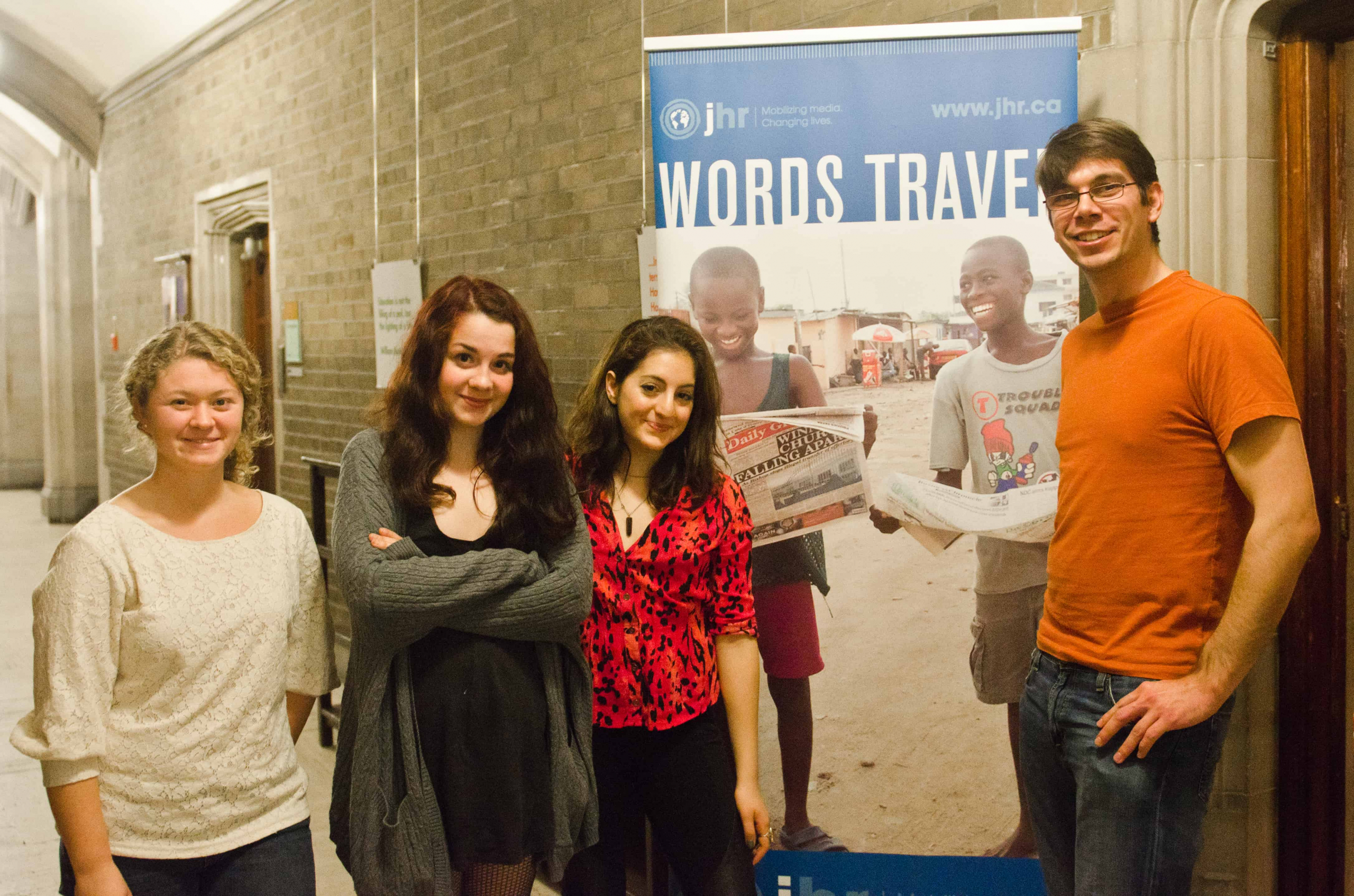Currently the “rape capital of the world,” according to a recent United Nations report, the Democratic Republic of Congo is facing one of its most lethal wars since WWII, but also one of the worst cases of injustice against its citizens.
To raise awareness about the human rights crimes in the DRC, Journalists for Human Rights (JHR) in partnership with the Political Science Student Association hosted an annual fundraiser, “Hollerday,” at Hart House last Tuesday, November 15.
The event focused on the anarchy in the DRC as a result of the economic and political instability brought on by blood minerals like coltan, which are in high demand for making electronics such as phones and computers. The fight for control of resources and right of extraction has led to a variety of human rights violations, chief among them being sexual violence.
A May 2011 UN report stated that one act of sexual violence is committed in the DRC per minute, most of them by the military, police forces, and civilians.
During the event, speakers discussed the importance for consumers to put pressure on electronics companies and governments to stop the violence in the Congo.
“The key to getting people involved is to show them that they are complicit in this,” said JHR U of T chapter executive Cassandra Dang Nguyen. “If we can make the connection visceral, if we can make it strong, then there’s more of a chance.” Goldie Poll, another U of T JHR executive, agreed.
“If they [corporations] know that people are going to stop buying their products if they don’t stop what is happening in the Congo, then it’s more likely they will actually do something.” JHR funds go directly to their on-the-ground DRC project, which works toward advancing victim’s rights and pressuring local authorities into ending their current system of rampant impunity.
Margaret Flynn, Amnesty International’s representative, discussed the current culture of impunity in regards to sexual violence in the DRC. According to her, the current system is underdeveloped, corrupt, and in the hands of those committing the crimes themselves. JHR youth coordinator Ken Zolatar added that rape in their society is the legal equivalent of jaywalking in Canada.
Another speaker, Glenys Babcock, President of Pragmora, an international peace think-tank and peace activist group, spoke about the negative effects of rape on lives of DRC victims. Babcock said that the stigmas associated with rape, and the accompanying physical and psychological mutilations, result in husbands leaving wives for being “unfaithful” or for being unable to have children. Sometimes, in an effort to save their family’s honour, young women who suffered rape and became pregnant, may be forced by their families to marry their attackers. The repercussions even extend to men, Babcock added, saying that victimized men can be left with the “dishonour” of engaging in homosexuality.
As the rate of rape and sexual violence in the DRC rises, JHR continues to advocate bringing the guilty to justice.
“Before social change happens, it always seems impossible,” said Nguyen. “But once that change happens, we could not imagine our life without that change.”


